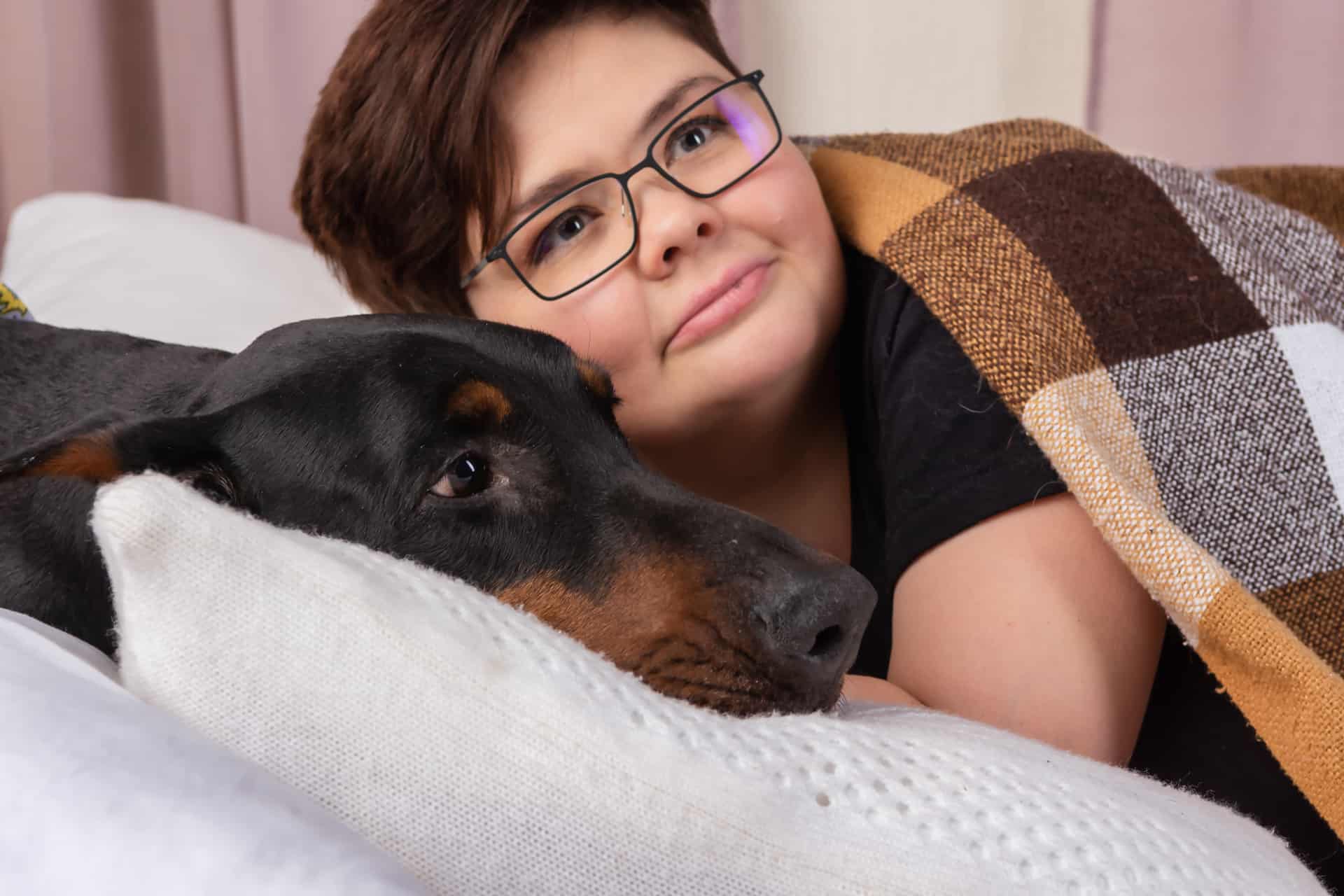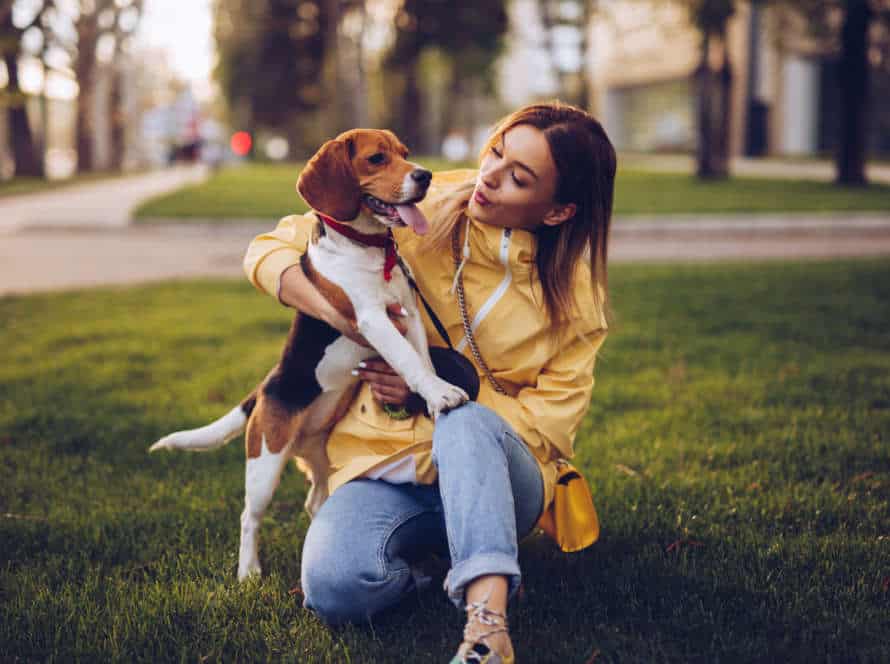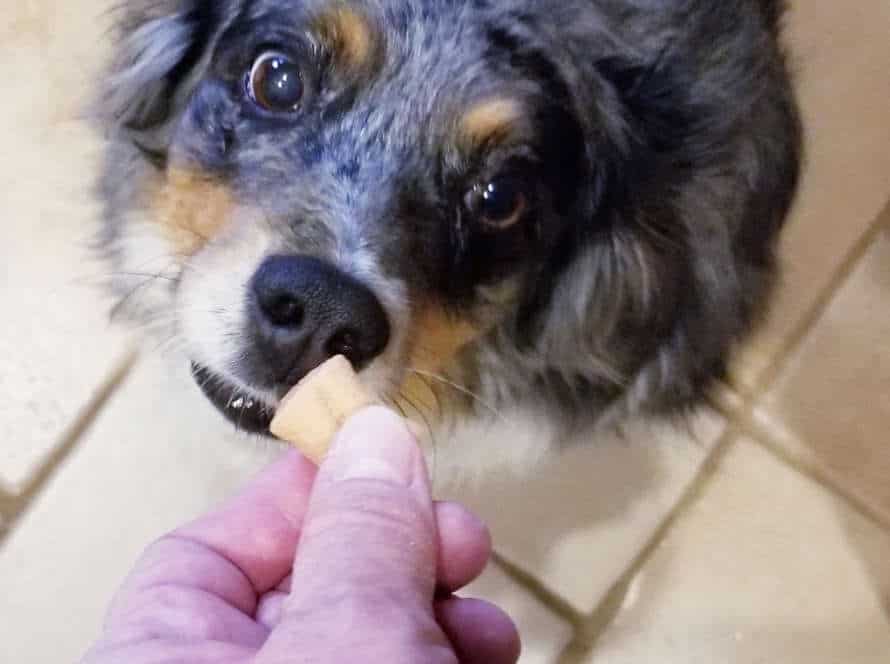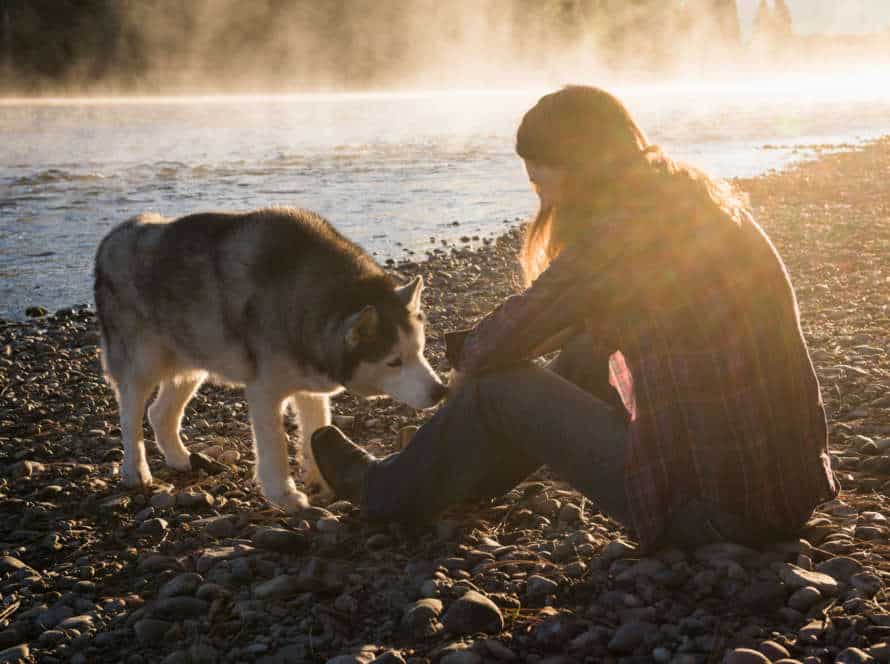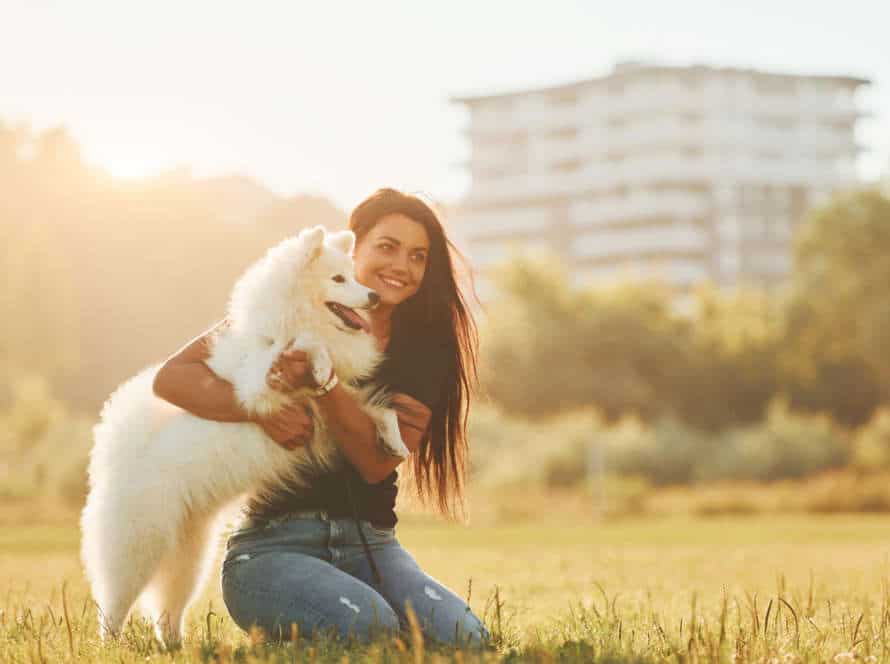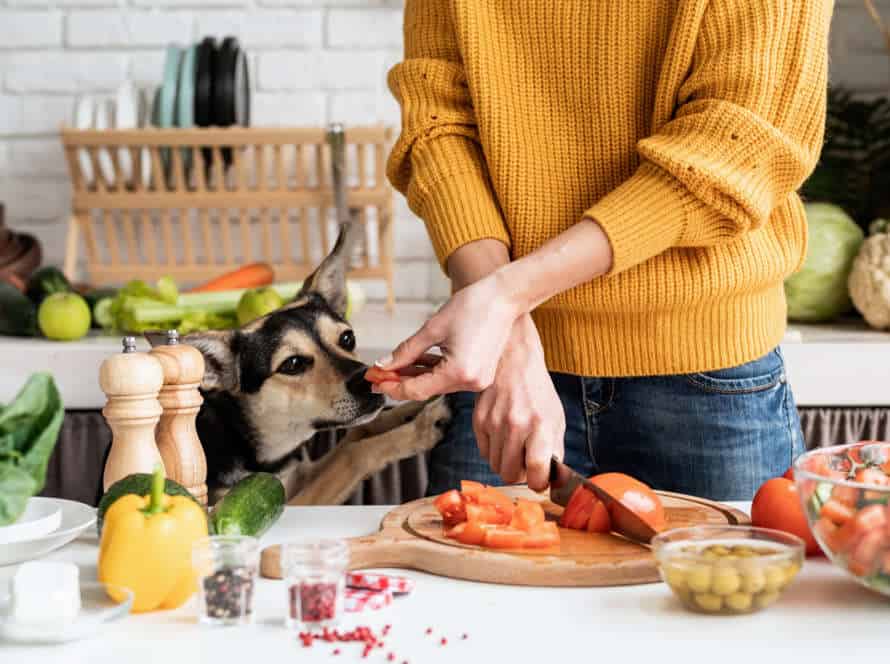Trust-Building Techniques for Senior Dogs: Enhance Your Bond
Building trust with your senior furry pal is really important. Here are some tips to help you strengthen your bond.
- Spend quality time together – groom, play, and go walking.
- Reward good behaviour – use treats, praise and affection.
- Be patient – they may have physical and cognitive changes.
- Provide comfort – a cozy bed or crate will make them feel safe.
- Listen to their needs – provide food and water, take them outside, give them rest.
By following these trust-building techniques, your bond will be better and your senior pup will be showered with love and care!
Understanding Your Senior Dog’s Perspective
Building trust with an elderly pup can be tough, but it’s worth it.
To be successful, it’s a must to try and understand the senior pooch. Their attitude may be different from younger dogs. To communicate better and form a trusting bond, gain an understanding of their behavior.
Changes in perception and behavior
As your dog ages, there may be shifts in the way they think and act. It’s important to understand and adjust to their point of view if you want to have a closer bond with them. Here are some of the most common changes:
- Vision and hearing loss. This can make them disoriented, nervous, or easily startled, which affects how they act around you.
- Decreased mobility and flexibility. They may have trouble getting up stairs, in and out of cars, or getting up from sleep. Plus, arthritis could make it hard for them to exercise or play with you.
- More attachment and dependence. Older dogs may need more of your attention and affection.
- Less tolerance. Due to changing hormones, they may be more irritable or sensitive.
If you use positive reinforcement and trust-building tactics that fit their new perspective, you can strengthen the bond with your senior dog. Love, patience, and understanding make all the difference.
Common fears and anxieties
As dogs age, they can develop concerns and worries that can change their conduct and quality of life. Knowing your senior dog’s point of view and using trust-building techniques can help strengthen your connection and reduce your dog’s fears.
Here are some common worries senior dogs might have:
- Separation anxiety: When a senior dog is too attached to their owner, and feels anxious when away from them.
- Noise phobia: When a senior dog is scared of loud or strange noises, like thunderstorms or fireworks.
- Fear of strangers: When a senior dog is timid around unfamiliar people or animals.
- Cognitive dysfunction: When a senior dog experiences confusion, memory loss, and disorientation because of age-related changes in their brain.
To reduce your senior dog’s fears and anxieties, try positive reinforcement techniques, giving them a secure and cozy environment, and asking your vet about potential medications or therapies that may help.
How to address their emotional needs
Seniors dogs have feelings too! Here are some tips for you to understand and meet your pup’s emotional needs:
- Observe their body language and vocalizations; it’s a great way to tell what they’re feeling.
- Show them lots of love and affection – pet, cuddle, and play together.
- Build trust by creating a daily routine and providing a safe and cosy home.
- Keep them entertained with puzzles and activities that suit their age.
- Check up on their medical needs – physical pain can cause emotional distress.
By understanding and fulfilling their emotional needs, you’ll have an even stronger bond and can give them a wonderful life in their golden years!
Positive Reinforcement Training Techniques
Positive reinforcement training can be amazing for creating trust with your older dog. Offer rewards like treats, verbal compliments, and physical love. Discover various techniques that can help your pup trust you more and change your bond! Let’s explore this topic!
What is positive reinforcement?
Positive reinforcement is a way to teach pets. It uses rewards instead of punishments for good behavior. This idea is based on the thought that animals learn better with praise and rewards, rather than scolding or punishing.
The rewards can be verbal, treats, toys or anything else the dog likes! Here are some examples:
- Treat training – Give treats when they obey commands.
- Clicker training – Use a clicker when they do something right, then reward them.
- Verbal praise – Praise them when they do something correctly.
Positive reinforcement is a great way to form a strong bond with older pets. By focusing on the positive and using these training techniques, you can gain their trust and respect.
Focus on reward-based methods
Reward-based training is a great idea for older dogs. Positive reinforcement is the key, rewarding them when they do something good instead of punishing them for bad behavior. Here are some trust-building techniques:
- Treats – Give them a treat and praise them when they obey your commands.
- Verbal Praise – Speak in a calming tone and praise them when they do something good.
- Playtime – Spend time playing together to relax and reduce anxiety.
- Consistency – Be consistent with commands and rewards to build trust and clear communication.
These techniques can help you build a strong bond with your senior dog and teach them new behaviors in a positive way.
Consistent and patient training practices
For senior dogs, consistent and patient training is a must. It helps build trust and strengthen the bond between the pup and its owner. Positive reinforcement training can be especially effective. This means rewarding good behavior, not punishing bad. Examples of this are:
- treats/praise for good behavior;
- regular exercise/playtime;
- patient/consistent training sessions;
- and reward-based games/activities.
By using these techniques, owners can grow trust and create a healthier, happier relationship with their senior pooch.
Health Concerns and Emotional Support
Senior dogs need love and care to have a great time in their later years. Ensuring they are healthy is the key to keeping them happy. Talk to your vet about any health problems and comprehend your pup’s physical and emotional needs. Interact with them in a way that strengthens the relationship between you and your senior dog. This will create a secure atmosphere for your pet.
Common health concerns for senior dogs
Senior dogs often face various health difficulties such as arthritis, dental issues, obesity, and cognitive decline. These can be managed with diet, exercise, veterinary care, and trust-building techniques. To build a strong bond with your senior pup, here are some tips:
- Spend time with them daily, engaging in activities they like.
- Train with positive reinforcement to promote good behaviors and trust.
- Provide a cozy and secure place for them to sleep.
- Get an ESA letter to lessen any anxiousness or behavioral problems.
Prioritizing your senior dog’s health and emotional needs will help to strengthen your bond. And make sure their golden years are happy and comfortable.
The role of emotional support in senior dog care
Emotional support is essential for senior dog care. It can help with health issues and improve their well-being. Here are some trust-building techniques to build a bond with your senior dog:
- Comfort: Make sure your senior dog’s bed is comfy and accessible. Also, ensure their food and water bowls are near.
- Playtime: Low-impact play sessions will keep them active and mentally engaged.
- Vet visits: Regular vet visits are important to monitor their health.
- Medication: Stick to their meds schedule if your senior dog needs it.
- Positive reinforcement: Praise them for good behavior, and don’t use physical punishment.
These techniques will give your senior dog emotional support and improve their quality of life. It will also benefit you.
Identifying warning signs and seeking professional help
As pet owners, it’s essential to be alert to our senior dog’s health and emotional wellbeing. Spying out warning signs and seeking pro help are vital for boosting our bond with our furry pals.
This is what to look out for:
- Changes in appetite or water drinking
- Lethargy or lack of vigour
- Trouble getting up or walking
- Loss of bladder control
- Behaviour or temperament changes
If you spot any of these signs, it’s time to get professional aid. Consult your vet for a complete health check and advice on diet and lifestyle changes that can upgrade your senior dog’s life quality. Plus, consider looking for emotional support for your pet. Professional pet therapy and emotional support dogs can aid in easing anxiety and depression and strengthen your bond with your senior pet.
Active Socialization and Confidence-Building
To build trust with a senior dog, active socialization and confidence-building activities are a must. Socialization helps your dog become familiar with people and other animals. Meanwhile, confidence-building activities like positive reinforcement and clicker training, teach your pooch commands. Maximize trust-building by combining socialization and confidence-building activities.
Creating positive social experiences for senior dogs
Making social moments special for senior pooches is important to keep them mentally and emotionally healthy. Utilize trust-building techniques to enhance your attachment with your puppy pal. Here are some ideas to try:
- Go for short, regular walks in unfamiliar but safe places.
- Get other animals and people to have good interactions with your dog and help them gain confidence.
- Do mental and physical activities such as puzzle toys and simple stretching exercises.
- Give treats or rewards for good behaviour.
- Think about joining a class or group for senior dogs where you can meet other owners.
By providing positive social experiences, your senior pup will feel more relaxed when in new places, become more confident and strengthen your connection.
Encouraging confidence through new and stimulating environments
Boosting confidence in senior dogs is achievable by introducing them to new, exciting places. Here are a few tips to help:
- Take them to parks, lakes, or dog-friendly cafes.
- Let them explore and meet other dogs and people in a secure way.
- Reward good behavior with treats or kind words.
- Keep them active with stimulating toys, puzzles, or games that challenge their physical and mental strength.
- Pro Tip: Regular exercise and socialization activities can help senior dogs stay healthy and improve their life quality.
Fostering social interaction with other dogs and people
Foster social interaction with other dogs and people for your senior pups! This can help in many ways, like increased physical activity, mental stimulation, and confidence-building. Here are some techniques to try:
- Introduce your senior pup to new people and dogs in a safe environment.
- Play with them to get both physical and mental stimulation.
- Teach them skills and tricks to build up their confidence and strengthen the bond.
- Praise them for positive behaviors during social interaction.
Remember to go slow and adjust the intensity of social interactions based on your senior pup’s needs and comfort levels. Building trust takes time, patience and consistency.
Bonding Activities for Senior Dogs and Owners
Bonding with your senior-aged pooch? Games and activities can help! Not just fun, but also a way to build trust. Here are some activities that deepen the relationship between you two:
Exercise and play therapy
Exercise and play therapy are key for senior dogs to stay healthy and happy. Plus, these activities can help create a strong connection between senior dogs and their owners. Here are some things to do with your senior dog to have fun and build a relationship:
- Puzzle Toys: These toys keep dogs mentally active.
- Sniffing Games: Hide treats or toys around the house or garden for your dog to sniff out.
- Gentle Tug-of-War: This game helps build trust, but don’t pull too hard.
- Easy Agility Courses: Use items around the home or garden to make a small obstacle course.
By doing these activities, senior dogs and their owners can improve their connection and overall well-being.
Pro Tip: Check with your vet before starting any exercise routine with your senior dog. This is important to make sure it’s safe for their health.
Relaxation techniques for senior dogs
As pooches age, relaxation techniques can help them manage stress and anxiety. Here are a few that can help senior dogs relax and form a bond with their owners:
- Massage: Begin with gentle petting. As they relax, use circles to rub their back and neck.
- Aromatherapy: Lavender and chamomile scents can be calming for dogs. Use a diffuser or spray in a secure, controlled way.
- TTouch: Circles and light touches help calm and relax. It can reduce stress-related behavior in senior dogs.
- Calming Music: Slow tempo music creates a calm environment. Avoid sudden changes in sound or volume.
- Engage the mind: Senior dogs enjoy being mentally stimulated. Try interactive games with treats or toys to reduce anxiety.
Finding joy in simple shared experiences
Senior pooches need special consideration and care to live a glad and sound life. One of the most ideal approaches to accomplish this is by taking part in connecting exercises that give basic shared encounters and advance the relationship between the senior canine and its proprietor. Here are some bonding activities:
- Take short strolls – Wander around the area with your senior pup, enabling them to investigate the sights and sounds.
- Play conceal and-look for – Hide treats or toys around the house or yard, letting your senior pooch use their sense of smell.
- Back rub and prepping – Spend time prepping and rubbing your senior canine, as this improves their physical and mental prosperity while strengthening the bond.
- Teach new deceives – Educating new deceives to your senior puppy is an incredible method to keep them mentally stimulated.
Doing these straightforward exercises can bring immense joy to senior doggies and help shape lasting bonds with their owners.
Frequently Asked Questions
Q: What are some trust-building techniques for senior dogs?
A: Some trust-building techniques for senior dogs include spending quality time together, using positive reinforcement, being patient and consistent, and respecting their personal space.
Q: Can trust be built with an older dog who has had previous negative experiences?
A: Yes, trust can be built with an older dog who has had previous negative experiences. It may take more time and patience, but using gentle and consistent techniques can help rebuild trust.
Q: How can positive reinforcement help build trust with senior dogs?
A: Positive reinforcement, such as rewarding good behavior with treats and praise, can help build trust with senior dogs because it creates a positive association with their actions and your presence.
Q: Are there any particular activities that can help enhance the bond with senior dogs?
A: Some activities that can help enhance the bond with senior dogs include going for walks, playing games, cuddling, and grooming. These activities can promote relaxation and affection, strengthening the bond between you and your senior dog.
Q: What should I do if my senior dog is afraid or untrusting of me?
A: If your senior dog is afraid or untrusting of you, start by creating a calm and safe environment for them. Use gentle and positive reinforcement techniques, and give your dog space and time to adjust at their own pace.
Q: How can I respect my senior dog’s personal space while still building trust?
A: Respect your senior dog’s personal space by avoiding sudden movements or invading their space without permission. Allow your dog to approach you on their terms, and give them space when they need it. This shows them that you respect their boundaries and can help build trust.

